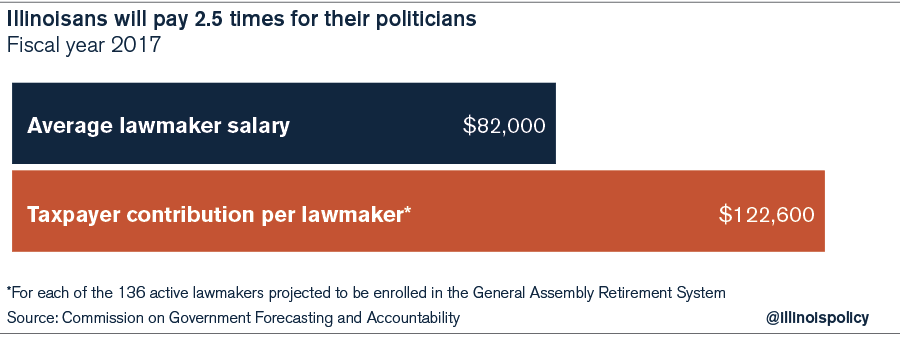Madigan’s law: Politicians prosper as Illinoisans feel pain
State lawmakers have effectively exempted themselves from the consequences of budget gridlock.
As community organizations across Illinois wait for grant money that may never come, service providers go without billions of dollars owed for their efforts, and low-income college students fear they may never graduate, some people in the Land of Lincoln have shielded themselves from any of the pain they’ve inflicted on others: state politicians.
Despite failing to pass a balanced budget for the past eight months, Illinois lawmakers continue to cash paychecks from taxpayers. The average lawmaker salary is more than $80,000, according to the Commission on Government Forecasting and Accountability. And that’s for what is legally considered a part-time job.
So why are lawmakers still getting paid without passing a budget? Just ask Illinois House Speaker Mike Madigan and Senate President John Cullerton.
Madigan and Cullerton shepherded a law through the General Assembly in 2014 exempting lawmaker salaries, operating expenses and pay increases from the annual appropriations process. In other words, these payments became “continuing appropriations,” meaning they must be specifically prohibited to stop their flowing to politicians’ pockets, and are not affected by the lack of a state budget.
Should lawmakers choose to pass a budget, Madigan and Cullerton’s law prohibits year-to-year cuts to lawmaker salaries and operating expenses.
No other office or agency of state government is gifted this sort of privilege.
With the foresight to pass these protections under former Gov. Pat Quinn – before encountering current reform-minded Gov. Bruce Rauner – why didn’t Madigan and Cullerton extend these privileges to the groups now trying to survive the budget impasse?
State politicians knew their own bottom lines may soon be on the chopping block, so they took them off the bargaining table altogether. If only other groups had been so lucky.
And taxpayers aren’t just being forced to pay politicians’ salaries, they’re also contributing to their lawmakers’ pension fund. In 2017, taxpayers will contribute the equivalent of nearly $123,000 per lawmaker in pension costs.

To prop up the General Assembly’s pension system, state taxpayers next year will contribute 17 times more money than lawmakers do toward their pensions – which pay out at an average of $58,400 a year.
Just like lawmaker salaries, politician pension payments are protected, too, even if there’s no state budget – regardless of whether taxpayers can afford them.
At a time when so many Illinoisans are affected by decades of fiscal recklessness, one would hope the state’s political elite would stand in solidarity, and shoulder those consequences in their own pocketbooks.
